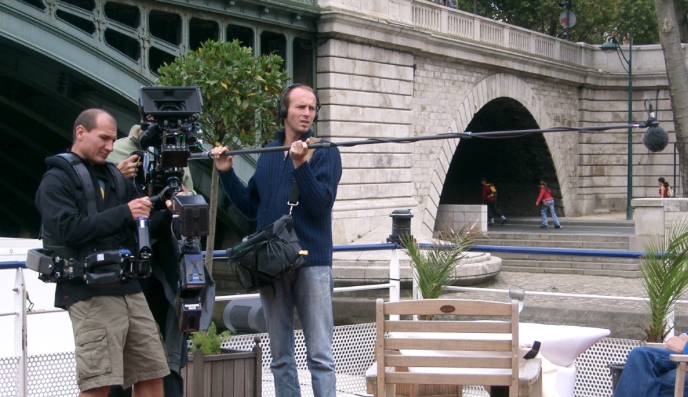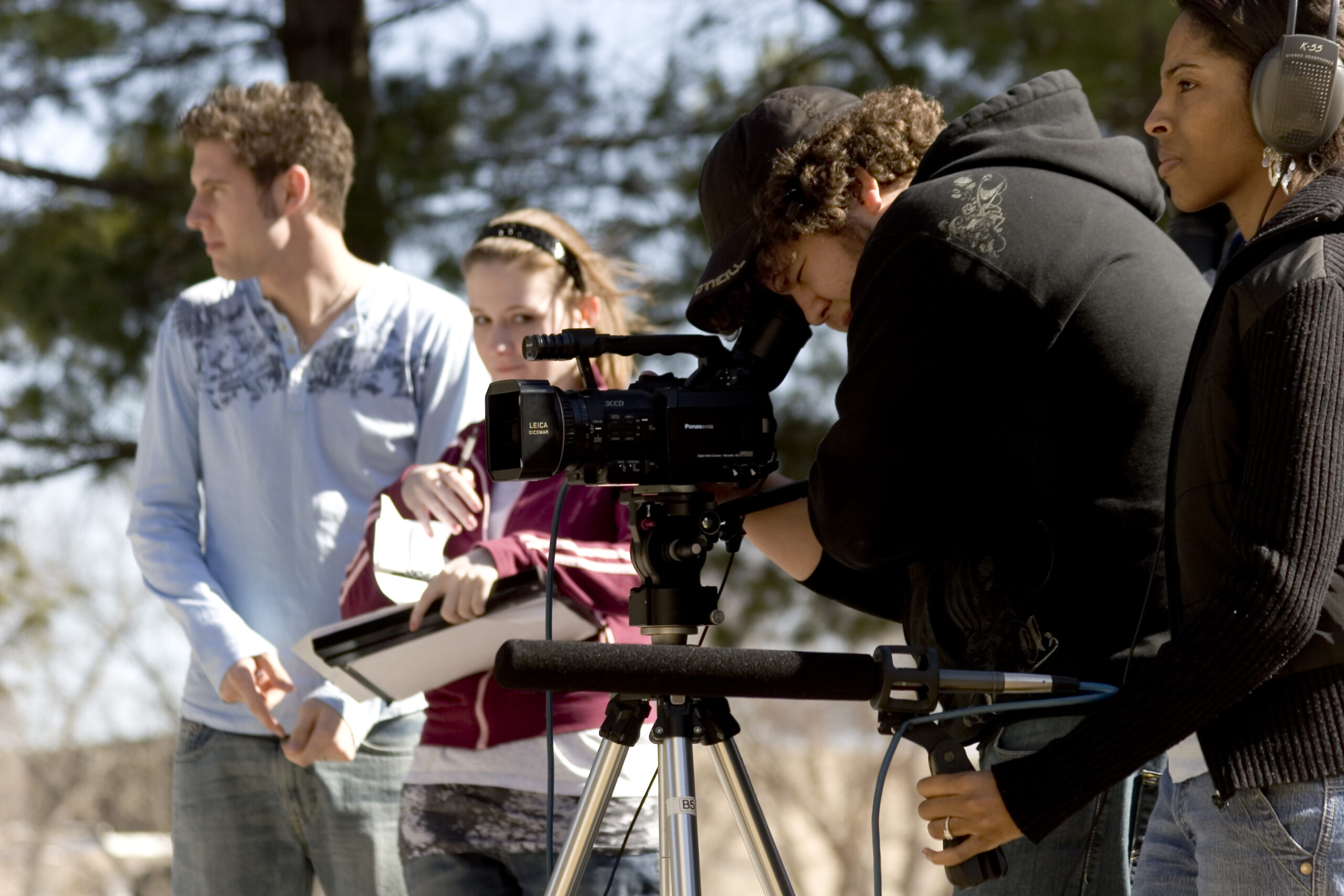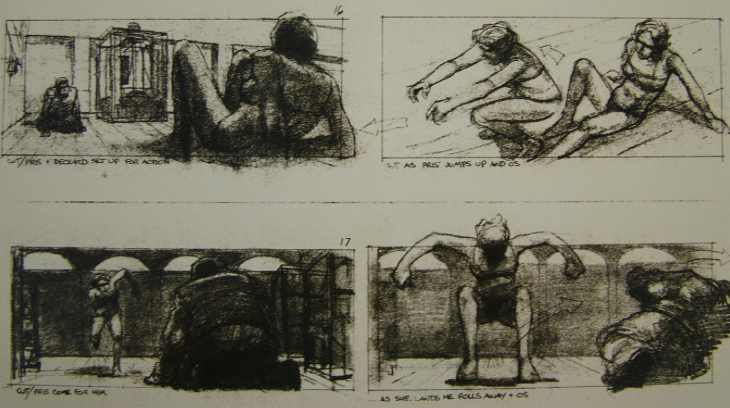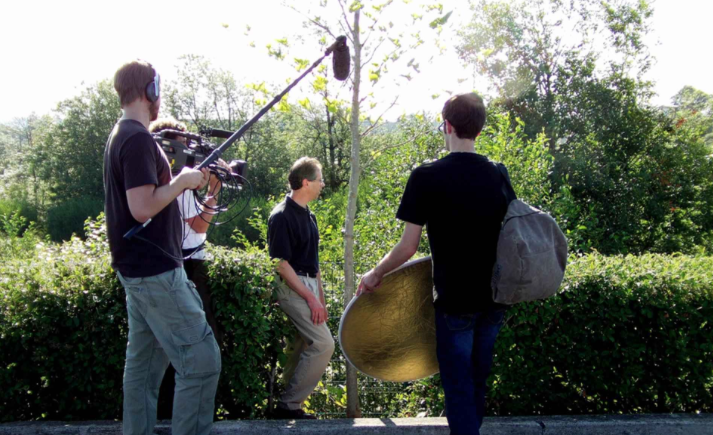Over the past year, we’ve shared a lot of great tips for those who are just getting started with filmmaking as a hobbyist, along with more advanced advice aimed at those who have already graduated from filmmaking school.
However, there are some fundamental nuggets of wisdom that frequently go ignored by newcomers (for reasons that nobody can quite figure out), setting back their progress by a considerable amount. Here are five of the most useful filmmaking tips that should never be overlooked, no matter your current level of experience.
1. Don’t Scrimp on Audio…
Spending the lion’s share of your budget to shoot on high quality (and really expensive) film stock will probably go unnoticed and unappreciated by 99% of the people watching the finished product. Shoddy audio quality, on the other hand, will ruin the watching experience for the same 99%.

Even if the audio sounds okay-ish in your studio cans while you’re in the editing suite, it doesn’t guarantee the same audio track won’t sound dreadful through massive speakers during a public screening, or even just a mid-grade TV.
Certain audio problems can be a real nightmare (if not impossible) to fix in post production, so don’t hamstring yourself from the get go—invest in good audio equipment before shooting, or hire a sound engineer who has their own and knows how to get the best out of it. A great sound editor who can make the final mix balance beautifully will also pay dividends in the long run.
2. …and Definitely Don’t Scrimp on Acting Talent
From the start, we need to state two things: filmmaking should be deeply enjoyable, and there’s no reason why you shouldn’t become friends with those who you work with.
While keeping this in mind, however, you should also exercise extreme caution if you limit your casting choices to solely your close circle of friends. You’ll end up giving them unnecessary passes for their less-than-impressive work, unless your friends happen to be professional actors in the first place (in which case, capitalize on your good fortune!).

Sure, hiring people who are trained in the field may cost you a bit, but again you won’t regret investing in real talent. A really good way to keep overheads low, without sacrificing on quality, is to buddy up with some acting school graduates—chances are they won’t charge an arm and a leg, are actively interested in expanding their body of work, and have a lot of talent ready and raring to go.
3. Listen to Outside Perspective
Okay, it’s admittedly paradoxical to list advice about taking advice on an article discussing advice newbies don’t actually listen to. However, not taking on board constructive criticism is one of the most common pitfalls a headstrong filmmaker fall afoul of.

Don’t let this be you. If your DP, or lead actress, or any other professional you’ve hired has an idea on how a particular aspect of the production under their remit should be handled, take it on board. Same goes for any feedback you get from test screenings.
4. Don’t Just Make it Up As You Go Along
On a movie with a huge budget and in a world where time costs money, everything is planned to the Nth degree ahead of the shoot. Meetings with the director of photography are held ahead of time, extensive rehearsals with the actors are conducted, locations are scouted, the script is all but finalized, shot lists planned, and storyboards drawn up.
Why should your production be any different?

Good planning costs nothing, so don’t just turn up on set and expect to get good results by muddling through the day. This often-ignored fundamental of filmmaking feeds into our final piece of advice…
5. Take Yourself Seriously
Again, filmmaking should be inherently fun (even if you’ll encounter moments in which you’ll want to tear your hair out!), but just because it’s fun doesn’t mean you shouldn’t treat your own efforts with reverence.
It’s very common for new filmmakers to denigrate themselves, thinking that just because it’s their first short or that they’ve “only got a tiny budget,” their output doesn’t matter. It does, and you should treat your work the same as if you’d been commissioned by Hollywood to produce a multi-million dollar summer blockbuster.

In short, don’t compare your chapter one with someone else’s chapter twenty. Put your heart and soul into it no matter what your limitations, and take pride in your achievements.
Best of luck!